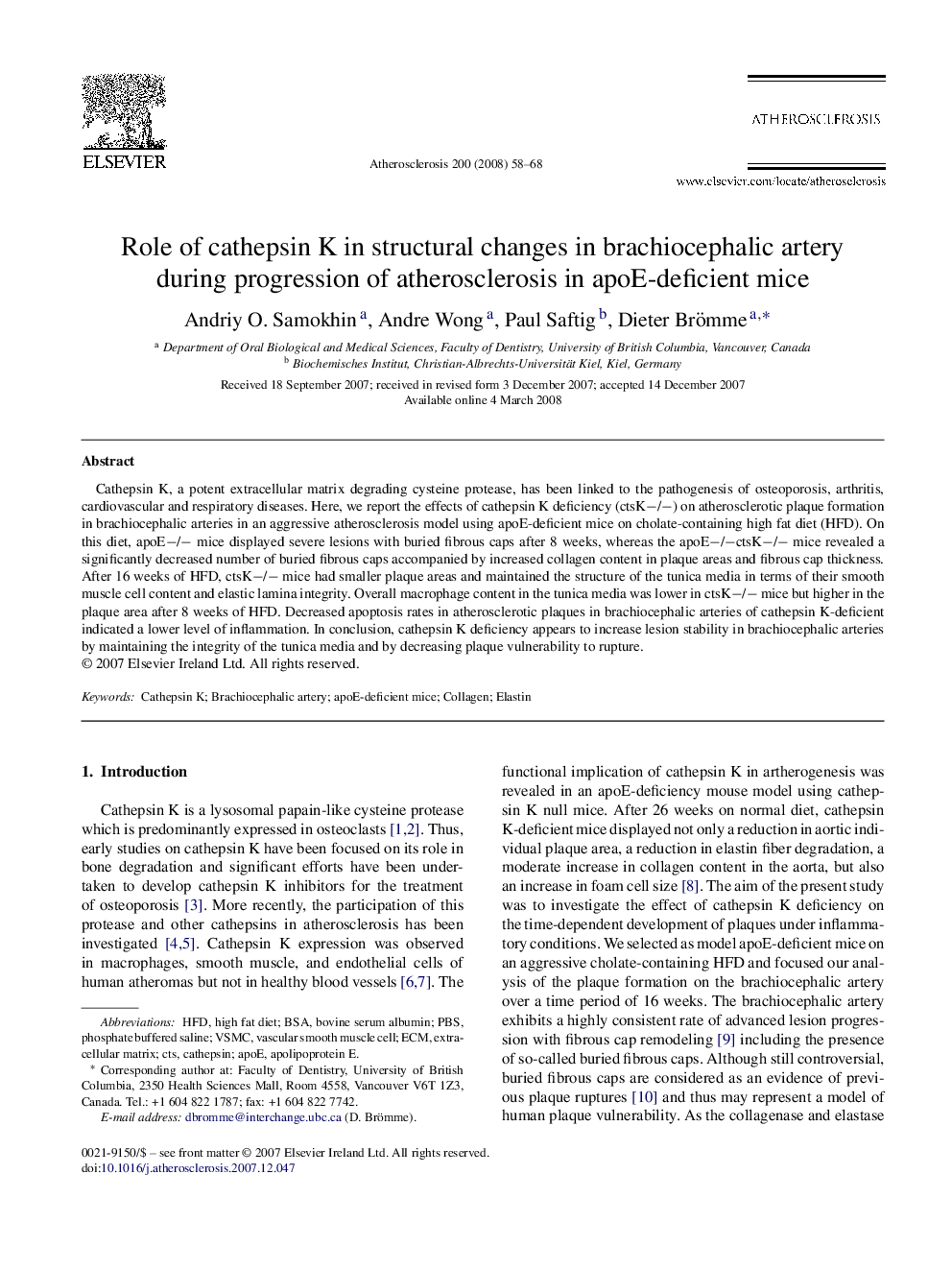| Article ID | Journal | Published Year | Pages | File Type |
|---|---|---|---|---|
| 2893951 | Atherosclerosis | 2008 | 11 Pages |
Cathepsin K, a potent extracellular matrix degrading cysteine protease, has been linked to the pathogenesis of osteoporosis, arthritis, cardiovascular and respiratory diseases. Here, we report the effects of cathepsin K deficiency (ctsK−/−) on atherosclerotic plaque formation in brachiocephalic arteries in an aggressive atherosclerosis model using apoE-deficient mice on cholate-containing high fat diet (HFD). On this diet, apoE−/− mice displayed severe lesions with buried fibrous caps after 8 weeks, whereas the apoE−/−ctsK−/− mice revealed a significantly decreased number of buried fibrous caps accompanied by increased collagen content in plaque areas and fibrous cap thickness. After 16 weeks of HFD, ctsK−/− mice had smaller plaque areas and maintained the structure of the tunica media in terms of their smooth muscle cell content and elastic lamina integrity. Overall macrophage content in the tunica media was lower in ctsK−/− mice but higher in the plaque area after 8 weeks of HFD. Decreased apoptosis rates in atherosclerotic plaques in brachiocephalic arteries of cathepsin K-deficient indicated a lower level of inflammation. In conclusion, cathepsin K deficiency appears to increase lesion stability in brachiocephalic arteries by maintaining the integrity of the tunica media and by decreasing plaque vulnerability to rupture.
